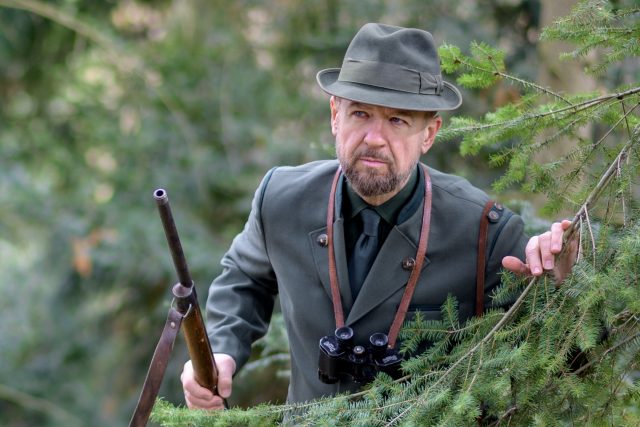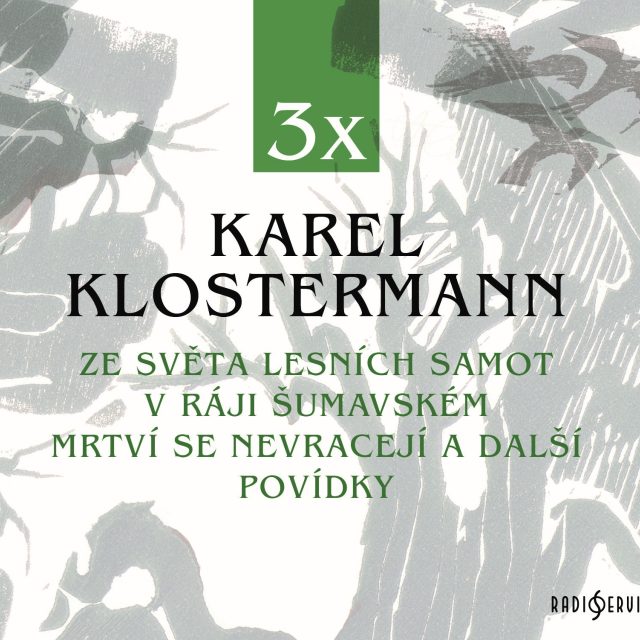František Benda
* 22 November 1709 Staré Benátky† 7 March 1786 Neue Dorf, today Babelsberg, Potsdam
Violinist and composer František (Franz) Benda is today considered to be one of the main representatives of the so-called Czech musical emigration, the substantial number of Czech musicians who for religious or economic reasons travelled abroad and made a name for themselves beyond Czech borders. František Benda left the Czechlands to seek religious freedom in Protestant Prussia and later, in order to free them from religious repression, took his whole family there with him. His younger brother Jiří Antonín Benda (or Georg Anton Benda 1722–1795) found an engagement in Gotha. In 1763 Benda wrote his autobiography (published in Czech in 1939), which gives a number of details about his life and is a valuable resource for the musical history of the 18th century.František Benda was born on 22 November 1709 in Staré Benátky into the family of weaver and folk-musician Jan Jiří Benda and his wife Dorota, who came from the musical dynasty of the Brixi family. It is known that in his youth he was an excellent singer and that he started to play the violin at the age of eight. As an instrumentalist he always remained an autodidact, but he did receive instruction in composition many years later. He travelled abroad for the first time in 1721 when he was twelve. He departed secretly from Prague, where he was a descant (high boy soprano) at the Benedictine monastery in the Old Town, and travelled to Dresden to take up the same position with the Jesuits. In 1723 he returned to Prague and began to study at Prague’s Jesuit gymnasium. It was here that he made his first attempts at composition although these early works have not survived. He went abroad for good in 1726, passing through a succession of positions and earning an enviable reputation as a violin virtuoso. We have evidence, for example, of his activity in Vienna, Sobiu (Transylvania), Wroclaw and Warsaw, where beginning in 1732 he held the position of first violinist in the royal orchestra of Augustus II the Strong. Upon the recommendation of Johann Joachim Quantz (1697–1773), on 17 April 1733 in Ruppin, Benda became a violinist in the orchestra of crown prince Friedrich II of Prussia. He then followed Friedrich in 1736 to nearby Rheinsberg and after his coronation in 1740 to Potsdam, where Benda remained until the end of his life faithful to Friedrich. It was only during his service with Friedrich that he received systematic instruction in composition from Johann Gottlieb and Carl Heinrich Graun. As is clear from Benda’s autobiography and even more so from Charles Burney’s famous musical travelogue, Benda was highly appreciated at Friedrich’s court and had an unparalleled part in its musical life. In 1772 he was named Kapellmeister. Sources from that period found in Benda’s playing an exceptional lyricism of expression along with an incontrovertible mastery of technique. Today he is referred as the artistic successor of the German virtuoso Johann Georg Pisendel (1687–1755), with whom he was personally acquainted. Along with the Graun brothers, Johann Joachim Quantz and Carl Philipp Emanuel Bach, he is classed in the so-called Berlin school associated with the tradition of Baroque style. Although by the works he composed Benda does belong to the Baroque composers, we also find in his compositions elements of emerging Classicism. He was more inclined to homophonic composition, and in matters of form he anticipated the sonata. The free movements of his violin sonatas show a familiarity with the "empfindsamer Stil" (sensitive style), which represents one of the types of musical manifestation between the Baroque and Classical and which is typically intimate and attentive to detail. It has also been claimed that Benda used elements of Czech secular melody and rhythm. His compositional activity took place between 1735 and 1750. His experience as a performer and his thorough-going knowledge of the ins and outs of his instrument on a virtuosic level predestined Benda to composition for the violin. Fifteen violin concertos, violin sonatas, capriccios and etudes form the bulk of his compositional legacy. In addition to his works for the violin, the list of his compositions also includes symphonies, trio sonatas and other chamber works. Only a very few of Benda’s works were published during his life, most of them remaining in copies in the Saxon State Library in Dresden. A thematic catalogue of his works first appeared in 1924, being then later reedited in 1984 by Douglas A. Lee.
Author: Robert Škarda
E-shop Českého rozhlasu
Starosvětské příběhy lesníků z časů, kdy se na Šumavě ještě žilo podle staletých tradic.
Václav Žmolík, moderátor


3x Karel Klostermann
Komplet obsahuje dva šumavské romány Ze světa lesních samot, V ráji šumavském a povídkový soubor Mrtví se nevracejí z pera klasika české literatury Karla Klostermanna (1848 - 1923), který tomuto kraji zasvětil celé své dílo.




